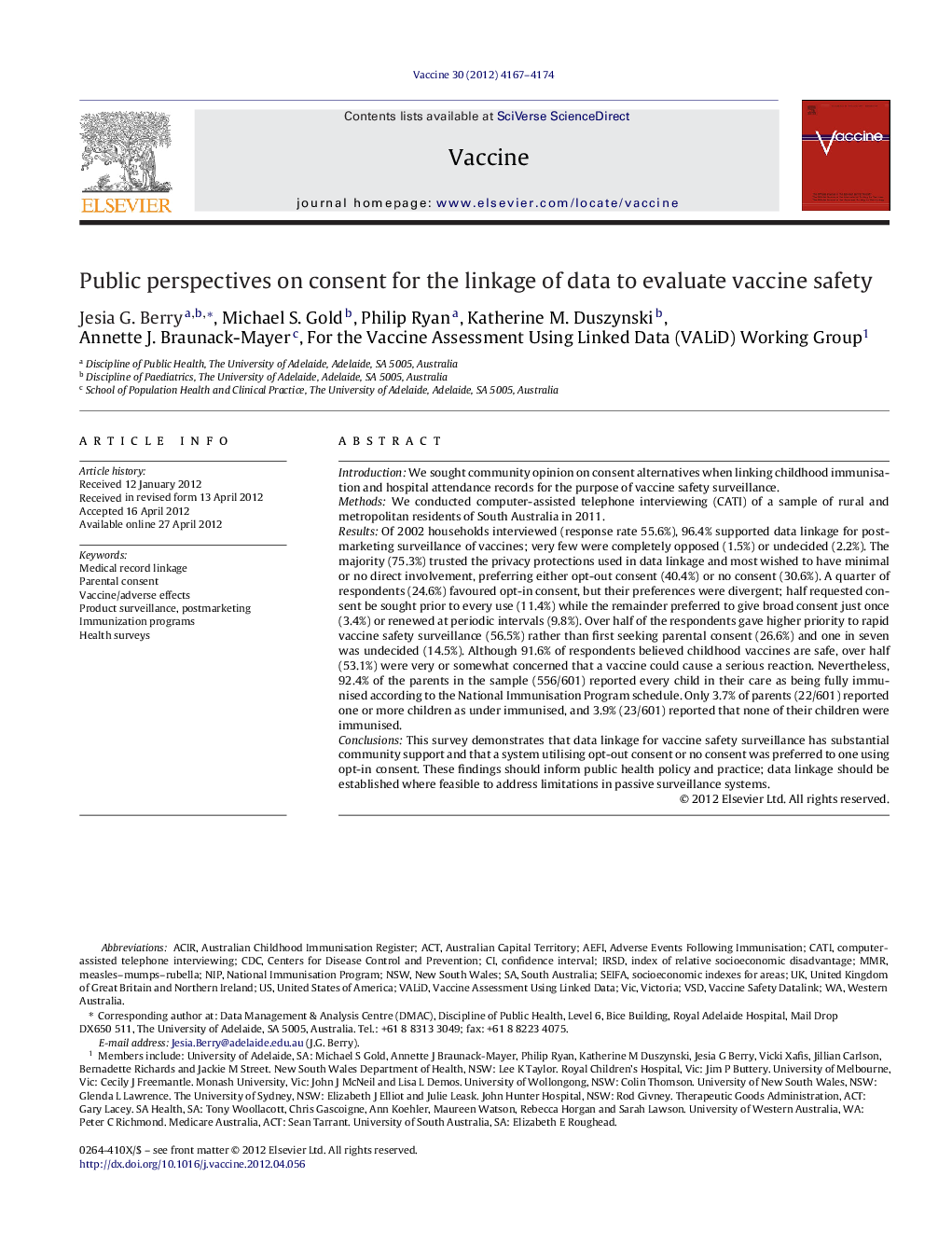| کد مقاله | کد نشریه | سال انتشار | مقاله انگلیسی | نسخه تمام متن |
|---|---|---|---|---|
| 2402938 | 1102870 | 2012 | 8 صفحه PDF | دانلود رایگان |

IntroductionWe sought community opinion on consent alternatives when linking childhood immunisation and hospital attendance records for the purpose of vaccine safety surveillance.MethodsWe conducted computer-assisted telephone interviewing (CATI) of a sample of rural and metropolitan residents of South Australia in 2011.ResultsOf 2002 households interviewed (response rate 55.6%), 96.4% supported data linkage for postmarketing surveillance of vaccines; very few were completely opposed (1.5%) or undecided (2.2%). The majority (75.3%) trusted the privacy protections used in data linkage and most wished to have minimal or no direct involvement, preferring either opt-out consent (40.4%) or no consent (30.6%). A quarter of respondents (24.6%) favoured opt-in consent, but their preferences were divergent; half requested consent be sought prior to every use (11.4%) while the remainder preferred to give broad consent just once (3.4%) or renewed at periodic intervals (9.8%). Over half of the respondents gave higher priority to rapid vaccine safety surveillance (56.5%) rather than first seeking parental consent (26.6%) and one in seven was undecided (14.5%). Although 91.6% of respondents believed childhood vaccines are safe, over half (53.1%) were very or somewhat concerned that a vaccine could cause a serious reaction. Nevertheless, 92.4% of the parents in the sample (556/601) reported every child in their care as being fully immunised according to the National Immunisation Program schedule. Only 3.7% of parents (22/601) reported one or more children as under immunised, and 3.9% (23/601) reported that none of their children were immunised.ConclusionsThis survey demonstrates that data linkage for vaccine safety surveillance has substantial community support and that a system utilising opt-out consent or no consent was preferred to one using opt-in consent. These findings should inform public health policy and practice; data linkage should be established where feasible to address limitations in passive surveillance systems.
► In 2011, we gauged public opinion on data linkage for vaccine safety surveillance.
► Support was high (96%) and the majority (75%) trusted its privacy protections.
► Data linkage with opt-out consent or no consent was preferred to opt-in consent.
► Most parents (92.4%) reported full compliance with immunising their children.
► Though many respondents (53%) were concerned about serious reactions to vaccines.
Journal: Vaccine - Volume 30, Issue 28, 13 June 2012, Pages 4167–4174